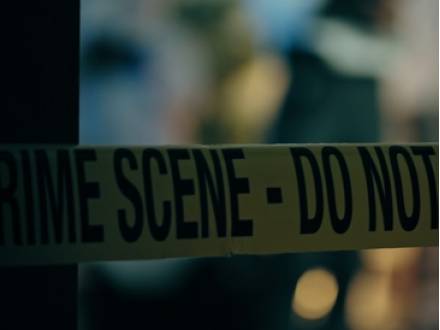“Doug & Chris are top notch. Both are extremely competent, family oriented and deliver results.”-D.P.
When Reckless Becomes Criminal: Texas Deadly Conduct Explained
 Not every criminal charge in Texas involves a direct threat or physical harm. Sometimes, reckless behavior that creates a dangerous situation can also result in criminal charges. The charge of deadly conduct does not require injury to another person, yet it can still have serious criminal penalties.
Not every criminal charge in Texas involves a direct threat or physical harm. Sometimes, reckless behavior that creates a dangerous situation can also result in criminal charges. The charge of deadly conduct does not require injury to another person, yet it can still have serious criminal penalties.
If the prosecutor believes you acted in a manner that placed others at substantial risk of serious harm – especially if a weapon was involved – you could be charged with deadly conduct. If you are facing charges of deadly conduct, it is extremely important that you speak to a Houston, TX criminal defense lawyer as quickly as possible.
How Does Texas Law Define Deadly Conduct?
Under Texas Penal Code § 22.05, a person commits the offense of deadly conduct when he or she recklessly engages in conduct that places another person in imminent danger of serious bodily injury. If a firearm is discharged at or in the direction of a person, a habitation, building, or vehicle, the charges increase from a misdemeanor to a felony, and the penalties increase as well.
What is the Difference Between "Reckless" and "Intentional" Under the Law?
Under Texas law, intentional actions involve a conscious desire to engage in specific conduct or cause a specific result. Reckless actions involve a disregard for potential harm. A person who drives while impaired is aware of the potential risks involved, but drives anyway, making his or her actions reckless. A person who robs a bank with the intent to steal money is also aware of the potential risks involved, yet acts intentionally to achieve a specific outcome.
What Are Some Common Situations That Can Lead to a Deadly Conduct Charge?
Driving in a dangerous manner through crowds of people can be considered deadly conduct. Firing a gun in the air or toward a building or vehicle – even when the individual believes the building or vehicle has no people inside – can be deemed deadly conduct.
Brandishing a firearm in a threatening manner, and pointing a gun at someone (even with no intent to fire the gun and even if the gun is unloaded) can also lead to charges of deadly conduct. Road rage incidents are often charged as deadly conduct, particularly those involving firearms.
What Are the Penalties for a Deadly Conduct Conviction?
If the deadly conduct charges are charged as a Class A misdemeanor, the defendant acted recklessly or brandished a firearm. The penalties for this offense include up to one year in jail and a maximum fine of $4,000. If a weapon is discharged during the deadly conduct, the charges are increased to a third-degree felony.
Penalties for a third-degree felony in Texas include a prison term of two to 10 years and a maximum fine of $10,000. The use of a deadly weapon can impact parole eligibility and disqualify the individual from some probation options.
What Are Some Potential Defenses to Charges of Deadly Conduct?
While the specific defense used for a person charged with deadly conduct will depend on the facts and circumstances, some of the more common defenses to this crime include:
- There was no intent on the part of the defendant to cause harm.
- Actual innocence: The charges stem from false allegations or mistaken identity.
- The defendant was engaging in self-defense or defense of others.
- The defendant lawfully used a firearm (he or she had an open carry or concealed carry permit).
- There is no credible evidence.
- The police made errors during the arrest or interrogation.
Contact a Houston, TX Criminal Defense Lawyer
If you are facing deadly conduct charges, you should know that there can be consequences to employment, housing, reputation, and the loss of gun rights in addition to jail and steep fines. When you hire a Houston, TX criminal defense attorney from Murphy & McKinney Law Firm, P.C., we will work hard to ensure that one moment does not derail your future.
Attorney Murphy serves on the Board of Regents for the National College for DUI Defense and is President of the Harris County Criminal Lawyers Association. Call 713-229-8333 to schedule your confidential consultation.




 Office Location
Office Location
